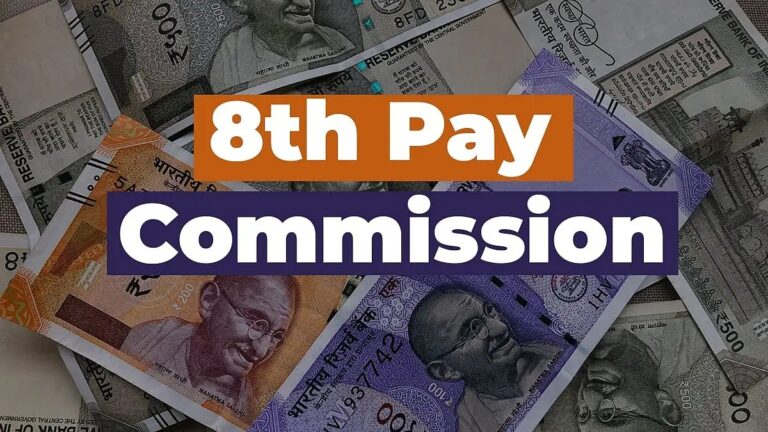
Central Government Employees Await Resolution Amid Pay Commission Deadlock
The formation of the Eighth Pay Commission for central government employees remains stalled, raising alarms about the potential delay in implementing the revised salary structure starting January 1, 2026. Despite repeated official notices, the required high-ranking officers have not submitted applications, leaving the commission’s establishment in limbo. The Union Finance Ministry has extended the application deadline multiple times, with the latest deadline set for July 31. However, without a clear timeline for officer appointments, the government faces significant challenges in meeting the 2026 implementation deadline. This bureaucratic hurdle has sparked debates about the prioritization of administrative processes over employee welfare, with critics arguing that the delay could disrupt financial planning for millions of public sector workers.
Administrative Hurdles and Officer Reluctance
Officials from West Bengal have highlighted that while many central government officers express interest in joining the Pay Commission, their current duties prevent them from applying. The process of releasing officers from their posts to participate in the commission is often slow, creating a bottleneck in the recruitment process. This administrative complexity has forced the ministry to repeatedly extend deadlines, but the lack of progress has raised questions about the effectiveness of the current approach. Some experts suggest that the government may need to adopt more flexible policies to expedite the selection process, such as allowing part-time participation or adjusting duty schedules for eligible candidates.
Employee Frustration and Union Protests
The prolonged delay has intensified concerns among central government employees, many of whom had anticipated swift action following the Lok Sabha elections. Employee unions have increasingly voiced their dissatisfaction, demanding immediate resolution of the deadlock to ensure the new pay structure is implemented on schedule. With the 2026 deadline looming, the uncertainty has created anxiety about potential financial instability for workers reliant on the revised salary framework. Unions are calling for transparency in the selection process and urging the government to prioritize the welfare of its employees over procedural delays, emphasizing the need for a clear roadmap to resolve the crisis.
Impact on Financial Planning and Public Sector Stability
The uncertainty surrounding the Eighth Pay Commission has broader implications for the financial planning of central government employees. Many workers depend on the revised pay structure for budgeting, retirement planning, and other personal financial commitments. A delay in implementation could lead to disruptions in income expectations, affecting both individual livelihoods and the overall stability of the public sector workforce. Additionally, the prolonged uncertainty may erode public confidence in the government’s ability to deliver on its promises, particularly in a context where fiscal discipline and employee welfare are critical priorities. Experts warn that the situation could escalate if the government fails to address the administrative bottlenecks promptly.
Uncertain Future for 2026 Pay Reforms
As the deadline for officer applications approaches, the fate of the Eighth Pay Commission remains uncertain. The government’s ability to resolve the current deadlock will determine whether the 2026 salary reforms can proceed as planned. Without a clear resolution, the risk of further delays looms large, potentially leaving employees without the promised benefits. The situation underscores the need for improved administrative efficiency and proactive communication to prevent similar crises in the future. With the clock ticking toward the 2026 deadline, the central government faces mounting pressure to act decisively to safeguard the interests of its employees and maintain the stability of the public sector workforce.



